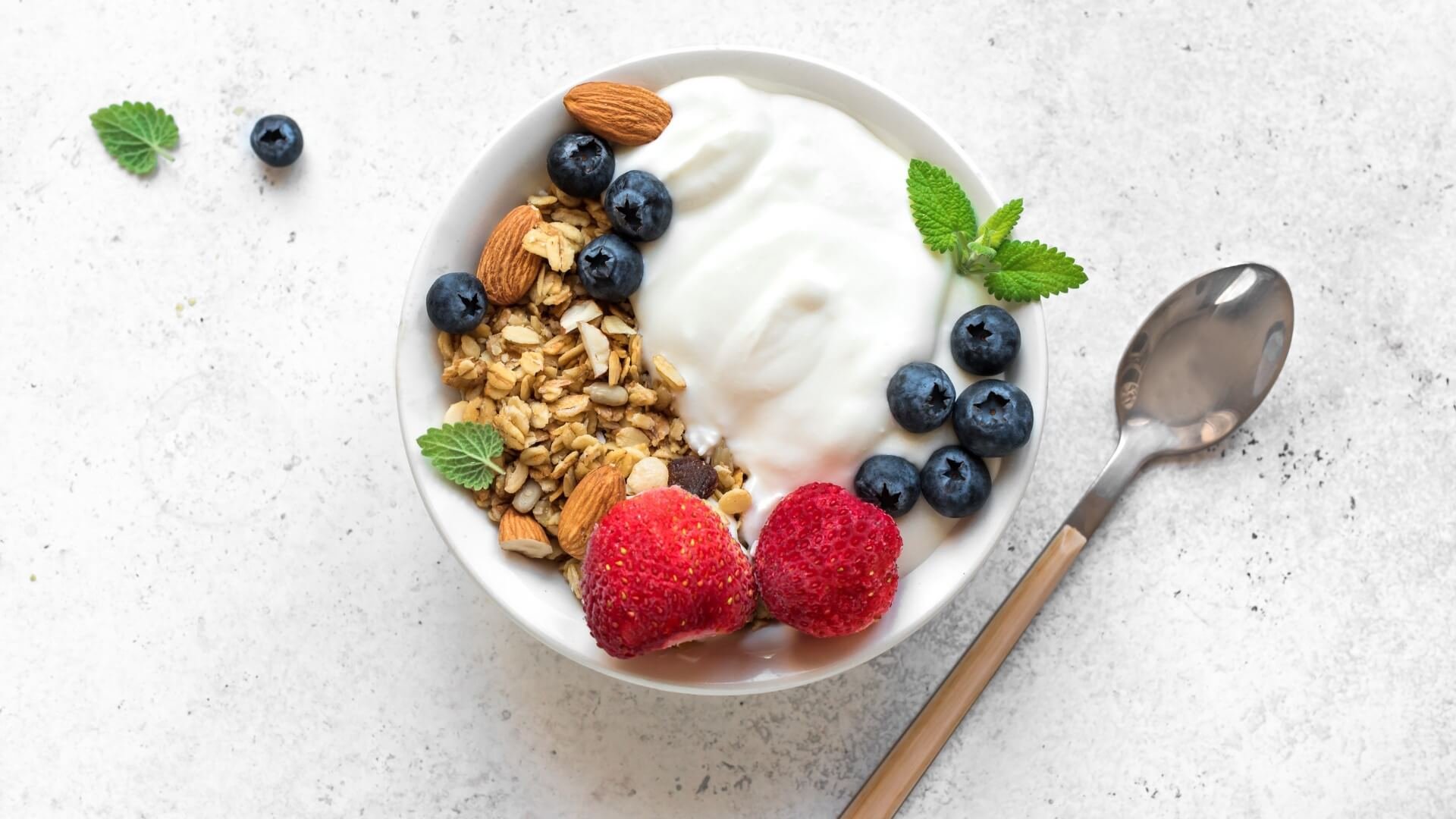How to Eat for Hair Growth after 40
This site contains affiliate links to products. I may receive a commission for purchases made through these links. However, this does not impact my reviews and comparisons. I highlight products I use and recommend to friends. Please see disclosures.
Once you cross 40, there are certain changes you kind of expect to see coming. One that you may not see coming is thinning hair. Since food is medicine, a good place to start in preventing this by eating the right foods to supply your body what it needs to grow thicker, healthy hair.
While various factors contribute to hair thinning, including genetics, hormonal changes, and environmental influences, adopting a nutrient-rich diet can play a crucial role in promoting thicker hair and supporting healthy hair growth, especially for women over the age of 40. In this blog post, we'll explore the reasons behind hair thinning, delve into the essential vitamins and minerals that encourage hair growth, and identify foods that can naturally provide these nutrients.
Understanding Hair Thinning:
Before we dive into the dietary aspects of promoting thicker hair, it's essential to understand why hair thinning occurs, particularly in women over 40. Several factors contribute to this phenomenon:
Hormonal Changes:
As women age, hormonal fluctuations, especially during menopause, can impact hair growth. Decreased levels of estrogen and progesterone and an increase in androgen hormones may lead to hair thinning.
Nutrient Deficiency:
Insufficient intake of essential vitamins and minerals can contribute to hair loss. As the body ages, its ability to absorb nutrients may decrease, making it crucial to prioritize a nutrient-dense diet.
Reduced Blood Circulation:
Aging can lead to a decline in blood circulation, affecting the delivery of oxygen and nutrients to hair follicles. This can contribute to weakened hair and eventual thinning.
Environmental Factors:
Exposure to pollutants, UV radiation, and other environmental stressors can negatively impact hair health, leading to thinning over time.
Promoting Hair Growth Through Nutrition:
Now that we've outlined some of the reasons behind hair thinning, let's explore the vitamins and minerals that play a pivotal role in promoting hair growth and maintaining healthy locks:
Vitamin A:
Role: Supports the production of sebum, an oily substance that moisturizes the scalp and keeps hair healthy.
Food Sources: Sweet potatoes, carrots, spinach, kale, and eggs.
B-Vitamins (Biotin, B5, B6, B12):
Role: Essential for the formation of red blood cells, which carry oxygen and nutrients to the scalp and hair follicles.
Food Sources: Eggs, nuts, seeds, legumes, whole grains, and leafy green vegetables.
Vitamin C:
Role: Boosts collagen production, a crucial protein for hair strength (more on collagen coming up!).
Food Sources: Citrus fruits, strawberries, bell peppers, broccoli, and tomatoes.
Vitamin D:
Role: Supports hair follicle health and may help in reducing hair shedding.
Food Sources: Fatty fish (salmon, mackerel), fortified dairy or plant-based milk, and exposure to sunlight.
Vitamin E:
Role: Acts as an antioxidant, protecting hair follicles from damage.
Food Sources: Almonds, sunflower seeds, spinach, and avocados.
Iron:
Role: Supports the production of hemoglobin, which carries oxygen to the hair follicles.
Food Sources: Lean meats, beans, lentils, tofu, and fortified cereals.
Zinc:
Role: Helps with hair tissue repair and supports the oil glands around hair follicles.
Food Sources: Pumpkin seeds, chickpeas, cashews, and fortified cereals.
Omega-3 Fatty Acids:
Role: Nourishes hair and supports scalp health.
Food Sources: Fatty fish (salmon, mackerel), flaxseeds, chia seeds, and walnuts.
Protein:
Role: Hair is primarily composed of a protein called keratin, and ensuring an adequate protein intake is essential for maintaining the structure and strength of hair strands.
Food Sources: lean meats, fish, tofu, lentils, beans.
Might I recommend mixing collagen powder into your coffee (or a flavored one into a glass of water)? Collagen in particular is great for hair health, and this is a great way to get additional protein into your morning!
Incorporating these nutrients into your daily diet can be a powerful step toward promoting thicker hair and preventing further thinning. Now, let's explore some delicious and nutritious foods that can help you achieve these nutritional goals:
Foods for Thicker Hair and Hair Growth:
Salmon:
Rich in omega-3 fatty acids, salmon promotes hair health by nourishing the scalp and supporting hair follicles.
Spinach:
Packed with iron and vitamins A and C, spinach contributes to a healthy scalp and optimal oxygen delivery to hair follicles.
Eggs:
A great source of biotin and B-vitamins, eggs support hair growth and strengthen hair strands.
Sweet Potatoes:
Loaded with beta-carotene, sweet potatoes provide a boost of vitamin A, promoting sebum production for a moisturized scalp.
Nuts and Seeds:
Almonds, walnuts, flaxseeds, and chia seeds are rich in vitamin E, omega-3 fatty acids, and zinc, all crucial for hair health.
Citrus Fruits:
Oranges, lemons, and grapefruits are high in vitamin C, promoting collagen production and supporting hair strength.
Lean Meats:
Chicken, turkey, and lean beef are excellent sources of iron, vital for the production of hemoglobin and oxygen delivery to hair follicles.
Greek Yogurt:
High in B-vitamins, Greek yogurt supports the formation of red blood cells, contributing to a healthy scalp and hair growth.
Avocado:
Packed with vitamin E, avocados act as antioxidants, protecting hair follicles from damage and promoting overall hair health.
Beans and Legumes:
Chickpeas, lentils, and other legumes provide a combination of iron, zinc, and B-vitamins, supporting various aspects of hair health.
Incorporating a variety of these foods into your daily meals can create a well-rounded and nourishing diet that supports thicker hair and encourages healthy growth. You might notice a lot of crossover between this list of foods and those that are superfoods for liver health!
Additionally, it's crucial to stay hydrated by drinking an adequate amount of water, as dehydration can negatively impact hair health.
In terms of non-nutritional good tips: I had a good experience with rosemary oil. When I was recovering from a severe liver illness, I noticed a lot of hair loss and a change in texture. It was a vanity thing, but even though I was so very grateful to still be alive, I thought “no I can’t lose my hair after everything else!”
Aside from eating a diet packed with produce, I also read about the benefits of rosemary oil on your scalp to stimulate growth, so I gave it a try.
Even though my hair is back to normal today (SO VERY GRATEFUL), I still do this because it makes my shower feel like a spa.
(You know the dried eucalyptus over the shower head trend? I think this is even better.) Just put a few drops in your shampoo when you wash your hair.
For best results, apply it every day. It isn’t recommended to put undiluted essential oil on your skin (especially if your scalp is sensitive), so you should mix it into some oil (olive oil is always a good option). If you’re afraid this will make your hair too greasy, it’s fine to do it just on days when you wash your hair.
Finally, I have to mention the obvious:
Avoid over-styling: Heat styling tools, like curling irons and straighteners, can damage hair over time. Try to limit your use of these tools, and use a heat protectant spray when you do use them.
Be gentle: Avoid pulling or tugging on your hair, and be gentle when brushing or combing it. Use a wide-tooth comb or brush designed for detangling to avoid damaging your hair.
Protect your hair from the sun: Just like your skin, your hair can be damaged by the sun's UV rays. Wear a hat or use a hair product with UV protection when you will be spending time outside.
Achieving and maintaining thicker hair after the age of 40 involves a multifaceted approach, and nutrition plays a central role in this journey. By understanding the reasons behind hair thinning and prioritizing a diet rich in essential vitamins and minerals, women can take proactive steps to promote hair growth and overall hair health.
Remember, consistency is key, and it may take time to see noticeable results. In addition to a nutritious diet, other lifestyle factors such as regular exercise, stress management, and proper hair care routines can contribute to the well-being of your locks. Embrace the journey to healthier, thicker hair, and enjoy the benefits of nourishing your body from the inside out.
If you have concerns about your hair health, talk to your healthcare provider to rule out any underlying health conditions and develop a plan to promote healthy hair growth!

















